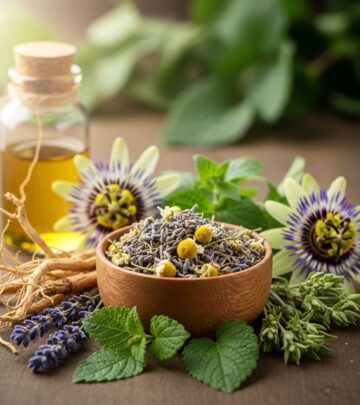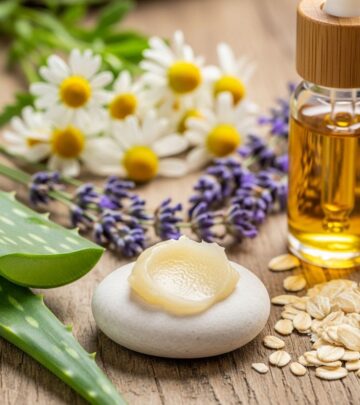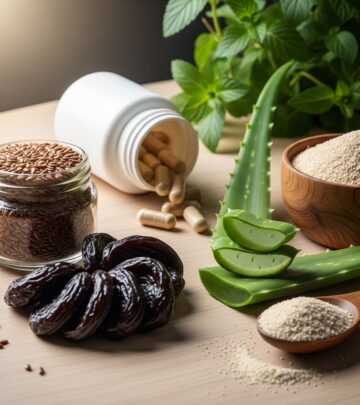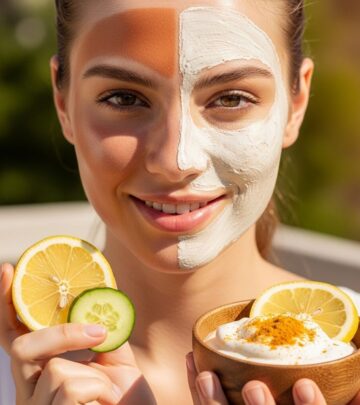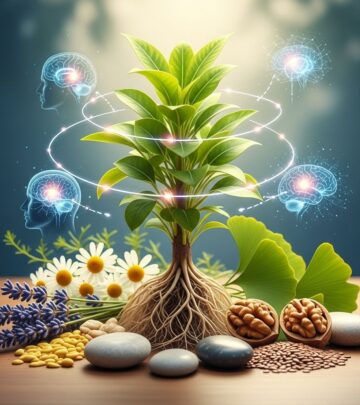5 Natural Remedies for Dry, Itchy Scalp That Actually Work
Discover powerful natural solutions to soothe scalp irritation and restore health
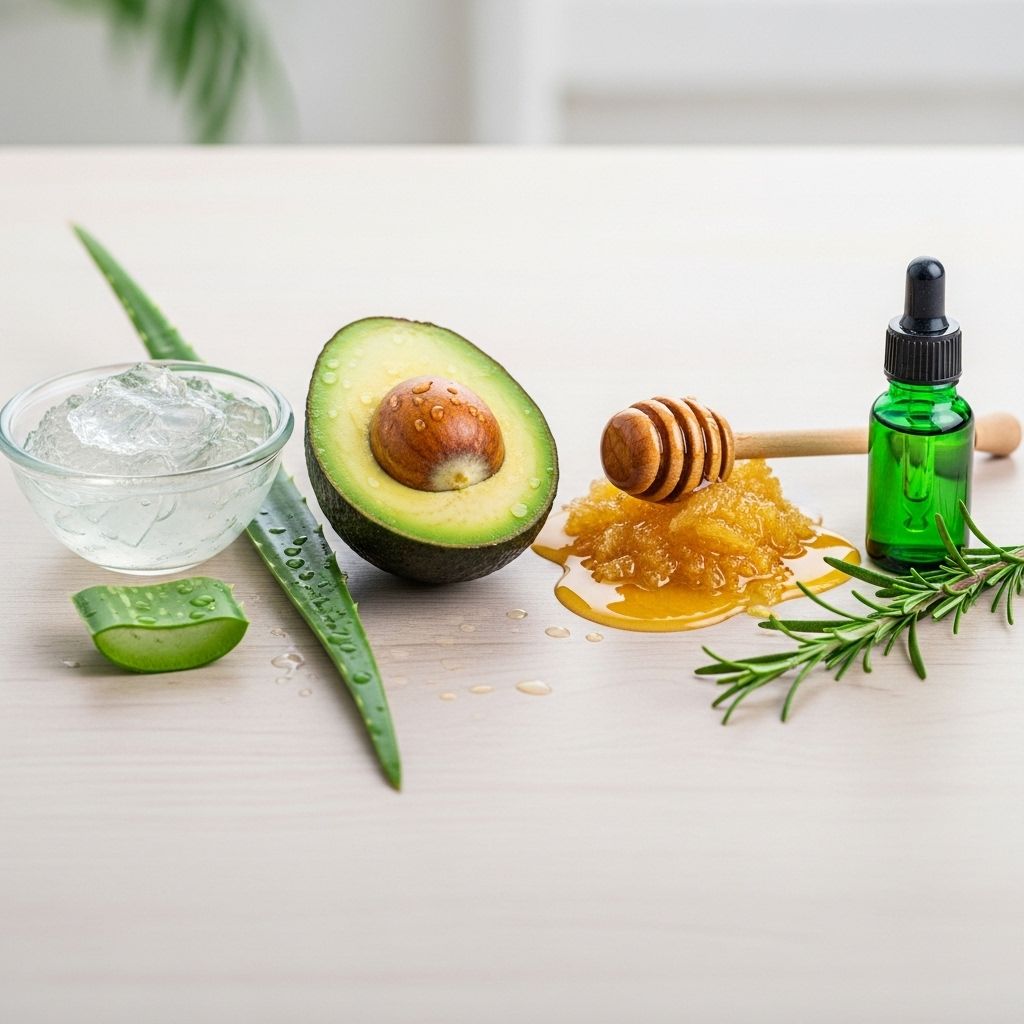
Dealing with a dry, itchy scalp can be frustrating and uncomfortable. The constant urge to scratch, visible flakes, and irritation can affect your confidence and daily comfort. While many commercial products promise quick relief, natural remedies offer a gentler, more sustainable approach to treating scalp dryness and itchiness. These time-tested solutions not only address the symptoms but also work to improve your overall scalp health without harsh chemicals or synthetic ingredients.
Understanding the root causes of scalp dryness is essential for effective treatment. A dry scalp occurs when the skin on your head doesn’t produce or retain enough moisture. This can result from various factors including harsh weather conditions, frequent washing with aggressive shampoos, hot water exposure, certain skin conditions like seborrheic dermatitis or psoriasis, and even dietary deficiencies. The good news is that nature provides powerful remedies that can restore balance and comfort to your scalp.
Understanding Dry and Itchy Scalp
Before diving into specific remedies, it’s important to recognize what causes scalp dryness and how it manifests. A healthy scalp maintains a delicate balance of natural oils that protect and moisturize the skin. When this balance is disrupted, the scalp becomes dry, tight, and prone to itching. Common symptoms include persistent itching, visible flaking or white particles in your hair, tightness or discomfort on the scalp, redness or irritation, and sometimes even hair breakage or loss.
Several factors can contribute to this condition. Environmental elements like cold weather, low humidity, and excessive sun exposure can strip moisture from your scalp. Product-related issues such as harsh shampoos containing sulfates, overuse of styling products, and frequent heat styling can damage the scalp’s protective barrier. Additionally, underlying skin conditions including eczema, psoriasis, and fungal infections may be responsible for chronic scalp dryness.
The Power of Natural Remedies
Natural remedies have been used for centuries to treat various scalp and hair conditions. Unlike many commercial products that may contain harsh chemicals, synthetic fragrances, and irritating ingredients, natural solutions work with your body’s own healing mechanisms. They provide gentle yet effective relief while nourishing your scalp and hair with beneficial nutrients, vitamins, and minerals.
The advantages of choosing natural treatments are numerous. These remedies typically have minimal side effects, are cost-effective compared to expensive commercial products, can be easily prepared at home with accessible ingredients, offer additional benefits beyond just treating dryness, and are environmentally friendly and sustainable. Let’s explore five of the most effective natural remedies that can transform your dry, itchy scalp into a healthy, comfortable one.
Coconut Oil: Nature’s Moisturizing Powerhouse
Coconut oil stands as one of the most celebrated natural remedies for dry scalp, and for good reason. This versatile oil is packed with beneficial properties that make it exceptionally effective at treating scalp dryness and itchiness. Rich in lauric acid, coconut oil possesses powerful antifungal and antibacterial properties that help fight off infections that can cause dryness and dandruff. Its unique molecular structure allows it to penetrate deep into the scalp, providing intense hydration and nourishment to hair follicles.
The benefits of coconut oil for scalp health are extensive. It creates a protective barrier that locks in moisture and prevents further dryness. The oil’s antimicrobial properties combat scalp infections that may contribute to itchiness and irritation. It nourishes hair follicles, promoting healthier hair growth from the roots. Regular use can reduce inflammation and soothe irritated skin, while its natural conditioning properties leave hair soft and manageable.
To use coconut oil effectively, start by warming a small amount of organic, virgin coconut oil until it becomes liquid. The warmth helps the oil penetrate better and makes application more comfortable. Part your hair into sections to ensure you can reach all areas of your scalp. Apply the warm oil directly to your scalp using your fingertips, and gently massage it in circular motions for five to ten minutes. This massage stimulates blood circulation and helps the oil absorb better. Leave the treatment on for at least twenty minutes, or for deeper conditioning, you can leave it overnight. Finally, wash your hair thoroughly with a mild, sulfate-free shampoo.
For best results, repeat this treatment once or twice weekly. Consistency is key when using natural remedies, as they work gradually to restore your scalp’s natural balance rather than providing temporary quick fixes.
Tea Tree Oil: The Antiseptic Solution
Tea tree oil has earned its reputation as a potent natural remedy for various scalp conditions, particularly those involving dryness and itchiness. This essential oil, derived from the leaves of the Australian tea tree plant, boasts impressive antiseptic, antifungal, and antibiotic properties that make it highly effective at addressing the underlying causes of scalp discomfort. Many commercial anti-dandruff shampoos include tea tree oil as a key ingredient, testament to its proven effectiveness.
The therapeutic benefits of tea tree oil work on multiple levels. Its antifungal properties combat fungal infections that can cause dandruff and scalp dryness. The oil’s antibacterial action eliminates bacteria that may contribute to scalp inflammation and irritation. It helps unclog hair follicles and removes dead skin cell buildup that can lead to flaking. Tea tree oil also soothes itchiness and reduces the urge to scratch, preventing further scalp damage.
Because tea tree oil is highly concentrated, it should never be applied directly to the scalp in its pure form. Instead, it must be diluted with a carrier oil. Here’s the proper application method: Mix three to five drops of tea tree oil with two tablespoons of a carrier oil such as coconut oil, jojoba oil, or olive oil. Apply this mixture to your scalp, focusing on particularly dry or itchy areas. Massage gently for several minutes to ensure even distribution and promote absorption. Allow the treatment to sit for ten to fifteen minutes before rinsing thoroughly. Wash your hair with a gentle shampoo to remove any residual oil.
Alternatively, you can add a few drops of tea tree oil directly to your regular shampoo. Simply mix two to three drops into your palm with your usual amount of shampoo, then wash your hair as normal. This method provides ongoing treatment with each wash.
Aloe Vera: The Soothing Healer
Aloe vera has been treasured for its healing properties since ancient times, and its benefits for scalp health are remarkable. This succulent plant contains a gel-like substance packed with vitamins, minerals, enzymes, and amino acids that work together to heal and nourish the scalp. Aloe vera’s anti-inflammatory properties make it particularly effective at calming irritated, itchy skin while providing deep hydration.
The healing properties of aloe vera address multiple aspects of scalp health simultaneously. The plant’s natural enzymes help remove dead skin cells that can accumulate and cause flaking. Its moisturizing compounds penetrate deeply to hydrate dry scalp tissue without leaving a greasy residue. Aloe vera reduces inflammation and redness associated with scalp irritation, while its antimicrobial properties help prevent infections that can worsen dryness. The gel also promotes overall scalp health by supporting the natural pH balance of your skin.
Using aloe vera for dry scalp treatment is straightforward and highly effective. The most potent form is fresh gel directly from an aloe vera plant. If you have access to an aloe plant, cut a leaf and extract the clear gel inside. Alternatively, you can purchase pure aloe vera gel from health stores, ensuring it contains minimal additives or preservatives. Apply the fresh gel directly to your scalp, spreading it evenly across affected areas. Gently massage it into your scalp for a few minutes to enhance absorption. Leave the treatment on for at least thirty minutes, allowing the beneficial compounds to penetrate and work their magic. Rinse thoroughly with lukewarm water, then wash your hair with a mild shampoo if desired.
For enhanced benefits, you can combine aloe vera with other natural ingredients. Mix aloe vera gel with a small amount of coconut oil for extra moisturization, or blend it with a few drops of tea tree oil for additional antimicrobial benefits. Regular application two to three times per week can significantly improve scalp condition and reduce itchiness.
Apple Cider Vinegar: The pH Balancer
Apple cider vinegar (ACV) might seem like an unlikely scalp treatment, but this kitchen staple is remarkably effective at addressing dry, itchy scalp conditions. The secret lies in its unique composition and properties. Apple cider vinegar is naturally antimicrobial, helping to eliminate bacteria and fungi that can cause scalp irritation. Its anti-inflammatory effects reduce redness and discomfort, while its acidic nature helps restore the scalp’s natural pH balance, which is often disrupted by harsh hair products.
The benefits of apple cider vinegar extend beyond simple cleansing. It acts as a gentle exfoliant, removing product buildup, dead skin cells, and excess oils that can clog hair follicles and lead to itchiness. ACV helps balance the scalp’s natural oil production, addressing both dryness and excessive oiliness. It can reduce dandruff by combating the fungi responsible for flaking. The vinegar also adds shine to hair and helps smooth the hair cuticle, reducing frizz and improving overall hair appearance.
Proper dilution is crucial when using apple cider vinegar on your scalp, as undiluted vinegar can be too harsh and potentially cause irritation. Create an effective scalp rinse by mixing equal parts apple cider vinegar and warm water in a bowl or spray bottle. For extra soothing benefits, you can add a few drops of essential oils like lavender or peppermint. After shampooing your hair as usual, pour or spray the ACV mixture over your scalp and hair, ensuring thorough coverage. Gently massage your scalp for one to two minutes, allowing the solution to work on problem areas. Leave it on for an additional two to three minutes, then rinse thoroughly with cool water. You don’t need to shampoo again after the rinse.
Use this treatment two to three times per week for optimal results. You should notice reduced itching and improved scalp comfort within a few applications. If you have particularly sensitive skin, start with a more diluted mixture, using one part ACV to two parts water, and gradually increase the concentration as your scalp adjusts.
Jojoba Oil: The Scalp Normalizer
Jojoba oil is often overlooked in favor of more popular oils like coconut, but it deserves recognition as an exceptional remedy for dry, itchy scalp. What makes jojoba oil unique is its remarkable similarity to sebum, the natural oil produced by our skin. This structural similarity allows jojoba oil to regulate oil production, making it effective for both dry and oily scalp conditions. The oil is technically a liquid wax ester rather than a true oil, which gives it superior stability and a long shelf life.
The therapeutic properties of jojoba oil make it ideal for scalp treatment. It provides intense moisturization that can quickly relieve dry scalp discomfort. The oil’s anti-inflammatory compounds reduce redness, irritation, and itching. Jojoba oil doesn’t clog pores, making it suitable even for those prone to scalp acne or folliculitis. It helps dissolve sebum buildup and other deposits that can accumulate on the scalp. Regular use promotes healthier hair growth by nourishing hair follicles and improving scalp circulation.
Applying jojoba oil for scalp treatment is simple and mess-free due to its light texture. Unlike heavier oils, jojoba absorbs quickly without leaving a greasy residue. Warm a small amount of pure jojoba oil between your palms to enhance its penetration. Part your hair into sections and apply the oil directly to your scalp using your fingertips or a dropper bottle. Massage gently in circular motions, paying special attention to particularly dry or itchy areas. Continue massaging for five to ten minutes to stimulate blood flow and ensure the oil is well distributed. Leave the treatment on for at least thirty minutes, or for deeper conditioning, apply before bed and leave on overnight. Wash your hair with a gentle shampoo, using lukewarm rather than hot water to preserve moisture.
Jojoba oil can also be mixed with other beneficial ingredients for enhanced effects. Combine it with tea tree oil for added antimicrobial benefits, blend with aloe vera gel for extra soothing properties, or mix with vitamin E oil for antioxidant protection. Use this treatment one to two times weekly as part of your regular hair care routine.
Additional Natural Remedies Worth Considering
While the five remedies above are highly effective, several other natural treatments deserve mention for their scalp-healing properties. Olive oil combined with baking soda creates a powerful treatment for dandruff alongside dry scalp. The olive oil moisturizes while baking soda’s antifungal and antibacterial properties, along with its gentle exfoliating action, help remove flakes and combat underlying fungal issues.
Avocado, whether consumed or applied topically, provides beneficial fatty acids that moisturize and protect the scalp. Mashing a ripe avocado with banana creates a nourishing mask that addresses severe dryness. Yogurt and egg masks offer both soothing and exfoliating benefits, with the protein content in eggs helping to nourish and protect scalp cells.
For those interested in herbal remedies, hibiscus flowers boost scalp circulation and provide nourishment when blended into a paste and applied to the scalp. Amla (Indian gooseberry) powder, rich in antioxidants and vitamin C, strengthens hair and supports scalp health when mixed with water and applied as a treatment. Walnut leaf rinses have anti-inflammatory and astringent properties that can reduce itching when the cooled water from boiled leaves is used as a final rinse.
Lifestyle Factors for Scalp Health
While topical treatments are essential, supporting your scalp health from within makes a significant difference in treatment outcomes. Your diet directly impacts skin and scalp health. Ensuring adequate intake of zinc, B vitamins (particularly biotin), omega-3 fatty acids, and vitamin E helps prevent dryness and supports natural moisture retention. Foods rich in these nutrients include fatty fish, nuts and seeds, eggs, leafy greens, and whole grains.
Proper hydration is fundamental for skin health, including your scalp. Drinking adequate water throughout the day helps maintain moisture levels in all skin tissues. Aim for at least eight glasses daily, more if you exercise regularly or live in a dry climate.
Your hair washing habits also play a crucial role in scalp health. Washing too frequently strips away natural protective oils, while washing too infrequently allows buildup that can cause irritation. Most people benefit from washing two to three times per week with a gentle, sulfate-free shampoo. Always use lukewarm rather than hot water, as hot water can strip moisture and exacerbate dryness.
Minimize the use of harsh styling products containing alcohol, sulfates, and synthetic fragrances that can irritate sensitive scalps. When using heating tools, always apply a heat protectant and use the lowest effective temperature setting. Protecting your scalp from environmental stressors like extreme cold, wind, and sun exposure helps maintain its natural moisture barrier.
When to Seek Professional Help
While natural remedies are effective for most cases of dry, itchy scalp, certain situations warrant professional medical attention. Consult a dermatologist or healthcare provider if your symptoms persist despite consistent use of home remedies for several weeks, if you experience severe itching that interferes with sleep or daily activities, if you notice signs of infection such as oozing, crusting, or severe redness, if hair loss accompanies your scalp issues, or if you suspect an underlying condition like psoriasis, seborrheic dermatitis, or eczema.
A healthcare professional can provide accurate diagnosis, prescribe medicated treatments if necessary, identify any underlying health issues contributing to scalp problems, and recommend specialized products suited to your specific condition.
Frequently Asked Questions
Q: How long does it take to see results from natural remedies for dry scalp?
A: Most people begin noticing improvement within one to two weeks of consistent use. However, natural remedies work gradually, so complete resolution may take four to six weeks. Patience and consistency are essential for lasting results.
Q: Can I use multiple natural remedies together?
A: Yes, many natural remedies can be combined for enhanced benefits. For example, mixing coconut oil with tea tree oil or combining aloe vera with jojoba oil can provide complementary effects. However, introduce new treatments gradually to ensure your scalp tolerates them well.
Q: Are natural remedies safe for color-treated hair?
A: Most natural remedies are safe for color-treated hair, though some like apple cider vinegar may slightly affect color vibrancy if used too frequently. Test on a small section first and limit acidic treatments to once weekly if you have recently colored your hair.
Q: How often should I apply these natural treatments?
A: Most treatments work best when applied one to three times per week. Overuse can sometimes lead to buildup or excessive oiliness, so find a frequency that maintains improvement without causing new problems.
Q: Can dry scalp lead to hair loss?
A: Chronic dry scalp can contribute to hair loss if left untreated. Constant scratching damages hair follicles, inflammation can disrupt the hair growth cycle, and poor scalp health creates an unfavorable environment for hair growth. Addressing dry scalp promptly helps prevent these complications.
Q: Is there a difference between dry scalp and dandruff?
A: Yes, though they’re often confused. Dry scalp results from lack of moisture and produces small, dry flakes. Dandruff is typically caused by excess oil and yeast overgrowth, producing larger, oilier flakes. The treatments differ, though some remedies like tea tree oil work for both conditions.
Conclusion
Natural remedies offer safe, effective, and sustainable solutions for dry, itchy scalp. Coconut oil, tea tree oil, aloe vera, apple cider vinegar, and jojoba oil each bring unique healing properties that address different aspects of scalp health. By incorporating these treatments into your hair care routine and supporting them with proper nutrition, hydration, and gentle hair care practices, you can restore comfort and health to your scalp without relying on harsh chemicals or expensive commercial products.
Remember that natural remedies require patience and consistency. Unlike quick-fix commercial products that may provide temporary relief, these natural treatments work to heal and restore your scalp’s natural balance for lasting results. Start with one or two remedies that appeal to you, observe how your scalp responds, and adjust your routine as needed. With dedication and proper care, you can enjoy a healthy, comfortable scalp and beautiful, vibrant hair naturally.
References
- https://www.healthline.com/health/home-remedies-for-dry-scalp
- https://www.medicalnewstoday.com/articles/home-remedies-for-a-dry-scalp
- https://www.goodrx.com/conditions/seborrheic-dermatitis/dandruff-itchy-scalp-home-treatment-remedies
- https://www.healthline.com/health/home-remedies-for-itchy-scalp
- https://naturemed.org/natural-treatments-for-dry-scalp/
- https://www.diviofficial.com/blogs/wellness/the-power-of-natural-remedies-for-a-dry-scalp-protecting-your-hair-health
- https://www.hairmdindia.com/blog/powerful-home-remedies-for-itchy-scalp
- https://forefrontdermatology.com/at-home-dry-scalp-treatment/
- https://www.treatmentroomslondon.com/hair-maintenance/home-remedies-for-an-itchy-scalp/
Read full bio of medha deb


